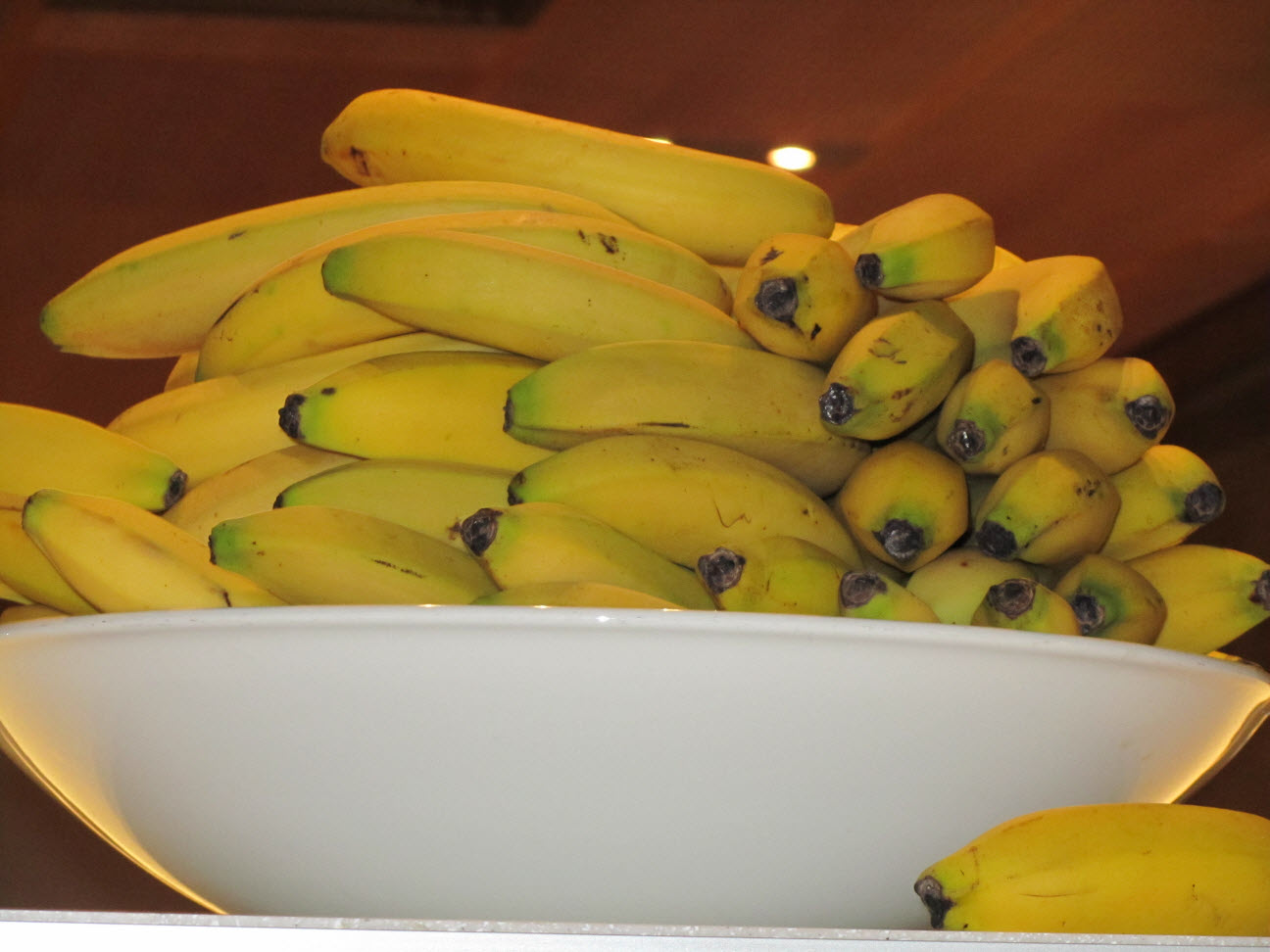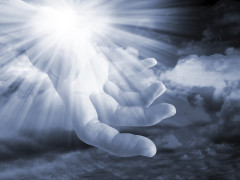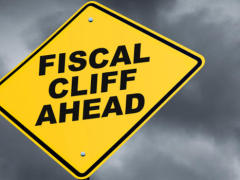Aquinas proposes a second objection to the view that humans naturally possess things from nature.
This is the continuation of my discussion of Aquinas on private property rights. ST II-II, 66, 1 (Summa Theologiae, Part II of Part II, Question 66, Objection 2.)
The Full Text
Prologue / Beginning
Article 1
Objection 1
Objection 2 (current post)
Objection 3
Aquinas’s Answer, Part I
Aquinas’s Answer, Part II. Aquinas, Aristotle and the Naturalness of Sustenance
Reply to Objections
Aquinas just posed his first objection to the idea that it is natural for man to possess external things. Now he poses a second objection.
Objection 2: Further, Basil in expounding the words of the rich man (Lk. 12:18), “I will gather all things that are grown to me, and my goods,” says [Hom. in Luc. xii, 18]: “Tell me: which are thine? Where did you take them from and bring them into being?” Now whatever man possesses naturally, he can fittingly call his own. Therefore man does not naturally possess external things.
My commentary:
Now Aquinas turns to an objection that is a bit more difficult to decipher for those of us who don’t know all the sources of the early Church like the back of our hand. The objection is mounted from a homily of St. Basil that refers to a parable in Luke 12.13-21.[1]For convenience, I have reproduced the whole parable at the bottom of this post Let’s start with the Luke parable which concerns a rich fool and then figure out what Basil is saying about it.
In the Gospel of Luke, Jesus is prompted to tell the parable of the rich fool (Luke 12.13) when a man asks him to get involved in resolving an inheritance dispute with his brother. Jesus refuses to get drawn into resolving the legal dispute the way a rabbi of his day would have.[2]On this interpretation of why Jesus refuses to get involved in an inheritance dispute, see, The Gospel According to Luke X-XXIV. The Anchor Bible. Translated and notes by Joseph A. Fitzmeyer. Garden … Continue reading Instead, Jesus uses the occasion to provide moral guidance. Jesus says: “Watch out! Be on your guard against all kinds of greed; life does not consist in an abundance of possessions.”
The Parable of the Rich Fool
To illustrate his point about possessions, Jesus tells the parable of a rich man who has an abundant harvest and doesn’t have the room to store the surplus. So the rich man decides to tear down his buildings and build bigger ones and store his surplus grain. And then the rich man says to himself, “You have plenty of grain laid up for many years. Take life easy; eat, drink and be merry.”[3]There are different translations of the verse Luke 12.18. Most idiomatic translations read as follows: “Then he [the rich fool] said, ‘This is what I’ll do. I will tear down my barns and … Continue reading God, however, calls him a fool and says, “This very night your life will be demanded from you. Then who will get what you have prepared for yourself. This is how it will be with whoever stores up things for themselves but is not rich toward God.”
The message of the parable might be said to be like the idiomatic expression today, “you can’t take it with you,” but it also evokes the idea that “you never know when your time will come.”
To be sure, the parable is perplexing in a couple of ways. The overall theme seems to be that a rich man should not hoard an abundance and God takes his life for doing so. Still, one might have expected the conclusion to be that the rich man should share his wealth with others, yet it concludes by saying the rich man is “not rich towards God.”
One way of understanding this conclusion is that a person who does not share his abundance with others is not rich towards God. Or, to say it in the positive, being rich towards God involves sharing one’s wealth. In the passage that follows the parable, Jesus interprets the parable for his own disciples, and instructs his disciples not to worry about the material goods because their focus should be on the kingdom of God. He ends his interpretation with the following: “Do not be afraid, little flock, for your Father has been pleased to give you the kingdom. Sell your possessions and give to the poor. Provide purses for yourselves that will not wear out, a treasure in heaven that will never fail, where no thief comes near and no moth destroys. For where your treasure is, there your heart will be also.” (Lk 12.32)
How does this parable relate to Aquinas’s question of whether it is natural for men to possess external things?
The parable is not explicitly addressing this question. While it is critical of one who hoards wealth, it does not necessarily or explicitly say that one has no right to take possession of goods at all. But one can perhaps draw out a conclusion. One might reason this way: why is hoarding wealth something for which God takes this rich man’s life? The answer: because he had no right to hoard what he doesn’t need. If so, then he has the right to take only what he needs, not to store up what he doesn’t need. Accumulating wealth, one might argue, is not “natural,” but taking what one needs is natural.
Perhaps the ambiguity in the parable is why Aquinas does not appeal directly to the parable itself but to St Basil’s interpretation of it. Who is St Basil? St Basil the Great (329-379), Bishop of Caesarea in the Roman province of Cappadocia, was influential in the development of monasticism in the Eastern Orthodox Church, known for his institutional work helping the poor during famine, and for representing a view that criticizes material wealth.
Saint Basil on the Parable of the Rich Fool
The homily of St Basil which Aquinas cites is known as “I Will Tear Down My Barns” and is a meditation on Luke 12:18.[4]See “I Will Tear Down My Barns,” In On Social Justice: St. Basil the Great. Trans. C Paul Schroeder. St. Vladimir’s Seminary Press, 2009, Kindle Loc 977-1195. The overarching theme of St Basil’s homily is the temptation of the good life, material wealth and prosperity. Basil reads the parable of the rich fool as a kind of antithesis of Job. Job was tested by losing everything. The rich fool is one whom God tries to satisfy by adding even more wealth, inviting his soul “to a more sociable and civilized demeanor.” Basil asks the question that is left implicit in the parable: “Why did the rich man’s land produce abundantly?”
Basil reasons: “From God comes everything beneficial: fertile soil, temperate weather, plenty of seeds, cooperation of the animals, and whatever else is required for successful cultivation.” Thus, though the rich man may think the wealth is the result of his labor, in fact the rich man cannot be thought to have amassed a surplus on his own. The rich man should
recognize your Benefactor! Consider yourself, who you are, what resources have been entrusted to you, from whom you received them, and why you received more than others. You have been made a minister of God’s goodness, a steward of your fellow servants. Do not suppose that all this was furnished for your own gullet! Resolve to treat the things in your possession as belonging to others. After all they bring pleasure for only a little while…
From the Aquinas quote of Basil, one might never know that Basil has put the words in the rich fool’s mouth. Here, according to Basil, is what the rich fool would say back to God in defense of storing a surplus. “‘But whom do I treat unjustly,’ you say, ‘by keeping what is my own?’”[5]“Tear Down My Barns,” 1, Kindle Loc 1018. The rich fool, says Basil, will argue that he did nothing wrong by hoarding his wealth. He is only keeping what is his own.
Herein lies the key question: If the farmer amassed a great abundance, is it his or her own? Are the individual efforts and labor enough to give ownership, despite the fact that the surplus isn’t needed? Basil answers the wealthy fool with the words that Aquinas quotes above: “Tell me, what is your own? What did you bring into this life? From where did you receive it?” The implied answer is that it is God not the rich fool who is responsible for the surplus. Aquinas is thus quoting Basil’s reply to the rich fool who tried to justify his accumulation of wealth.
Evoking an analogy that is used widely from antiquity to discuss common property, Basil drives home the point:
It is as if someone were to take the first seat in the theater, then bar everyone else from attending, so that one person alone enjoys what is offered for the benefit of all in common—this is what the rich do. They seize common goods before others have the opportunity, then claim them as their own by right of preemption. For if we all took only what was necessary to satisfy our own needs, giving the rest to those who lack, no one would be rich, no one would be poor, and no one would be in need.[6]“I Will Tear Down” 7, Kindle Loc 1162
Basil thus directly confronts the question of who owns what was given in common at creation. Just because rich persons may seize first what was given in common, they have no right to hoard their holdings as their own. To be sure, they may be able to take a seat in the theater for themselves, but not hoard seats and prevent others from having theirs.
Basil, then, presents a very powerful objection to the position that what one creates or produces is one’s own. The rich person argues that one should have ownership over the fruits of one’s own work. One should be able to keep one’s surplus. Basil argues that being first doesn’t give one rights to hoard what is common. By evoking Basil here, Aquinas is citing one of the powerful criticisms of the view that one may accumulate as much as one desires. The Basil position, on the contrary, suggests that one can possess what one can use, but not a surplus that one doesn’t use.
Does Aquinas Understate Basil’s Objection?
Aquinas’s short comment on Basil’s homily arguably understates the fairly profound implications of Basil’s argument. Aquinas summarizes Basil’s homily this way. “Now whatever man possesses naturally, he can fittingly call his own. Therefore man does not naturally possess external things.” This summary seems confusing and on the surface even contradictory. Let’s see if we can discern the conclusion Aquinas is deriving from Basil’s homily.
Aquinas starts by saying “now whatever man possesses naturally, he can fittingly call his own.” But what does this mean? What do people possess naturally? One might assume he means that whatever you need naturally, you can possess, that is, the basics of life, like food, clothing and shelter. Those are natural. But the non-basics, like the hoarding of wealth, or the extra seats in the theater, one can’t naturally possess because one takes more than one needs. Those needs are not natural. This is one way to make sense of Aquinas’s conclusion that “Therefore man does not naturally possess external things” meaning, other than those things which meet basic needs of life, a person does not have a natural right to possess external things.
This is a powerful objection with which Aquinas will have to deal, when he puts forward his own position. But before doing so, he will first pose a third objection, which we consider next.
For convenient reference, I have we reproduced the parable of the rich fool below.
Go onto objection 3.
The Parable of the Rich Fool Luke 12:13-21 New International Version (NIV)
13 Someone in the crowd said to him, “Teacher, tell my brother to divide the inheritance with me.”
14 Jesus replied, “Man, who appointed me a judge or an arbiter between you?”
15 Then he said to them, “Watch out! Be on your guard against all kinds of greed; life does not consist in an abundance of possessions.”
16 And he told them this parable: “The ground of a certain rich man yielded an abundant harvest.
17 He thought to himself, ‘What shall I do? I have no place to store my crops.’
18 “Then he said, ‘This is what I’ll do. I will tear down my barns and build bigger ones, and there I will store my surplus grain.
[Alternate translation Douay-Rheims Bible And he said: This will I do: I will pull down my barns, and will build greater; and into them will I
gather all things that are grown to me, and my goods.]
19 And I’ll say to myself, “You have plenty of grain laid up for many years. Take life easy; eat, drink and be merry.”’
20 “But God said to him, ‘You fool! This very night your life will be demanded from you. Then who will get what you have prepared for yourself?’
21 “This is how it will be with whoever stores up things for themselves but is not rich toward God.”
References
| ↑1 | For convenience, I have reproduced the whole parable at the bottom of this post |
|---|---|
| ↑2 | On this interpretation of why Jesus refuses to get involved in an inheritance dispute, see, The Gospel According to Luke X-XXIV. The Anchor Bible. Translated and notes by Joseph A. Fitzmeyer. Garden City, New York: Doubleday & Co, 1985, 85. |
| ↑3 | There are different translations of the verse Luke 12.18. Most idiomatic translations read as follows: “Then he [the rich fool] said, ‘This is what I’ll do. I will tear down my barns and build bigger ones, and there I will store my surplus grain.'” The translation cited in most translations of Aquinas follows a more literal translation such as from Douay-Rheims Bible “And he said: This will I do: I will pull down my barns, and will build greater; and into them will I gather all things that are grown to me, and my goods.” This more literal translation captures the rich man’s implicit claim that the goods that he is storing belong to him. |
| ↑4 | See “I Will Tear Down My Barns,” In On Social Justice: St. Basil the Great. Trans. C Paul Schroeder. St. Vladimir’s Seminary Press, 2009, Kindle Loc 977-1195. |
| ↑5 | “Tear Down My Barns,” 1, Kindle Loc 1018. |
| ↑6 | “I Will Tear Down” 7, Kindle Loc 1162 |




